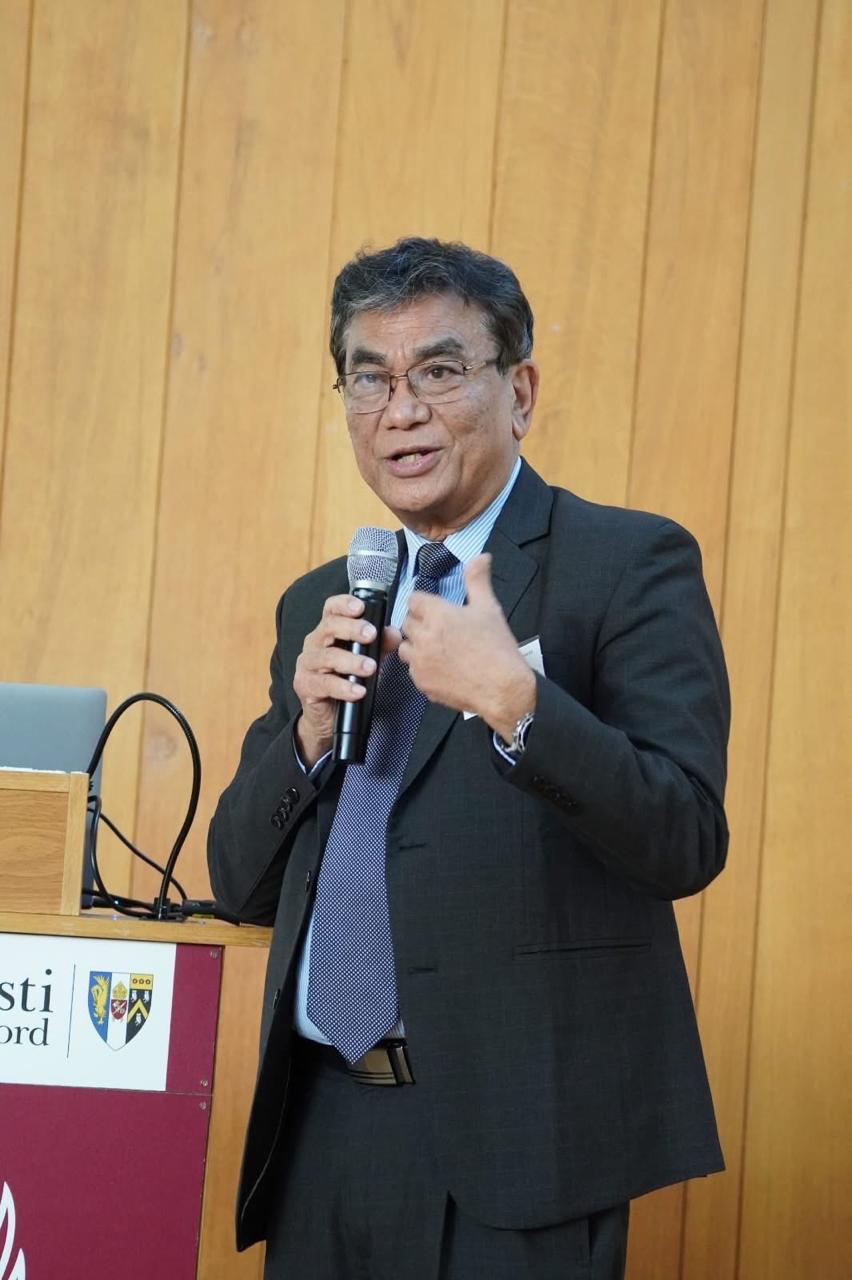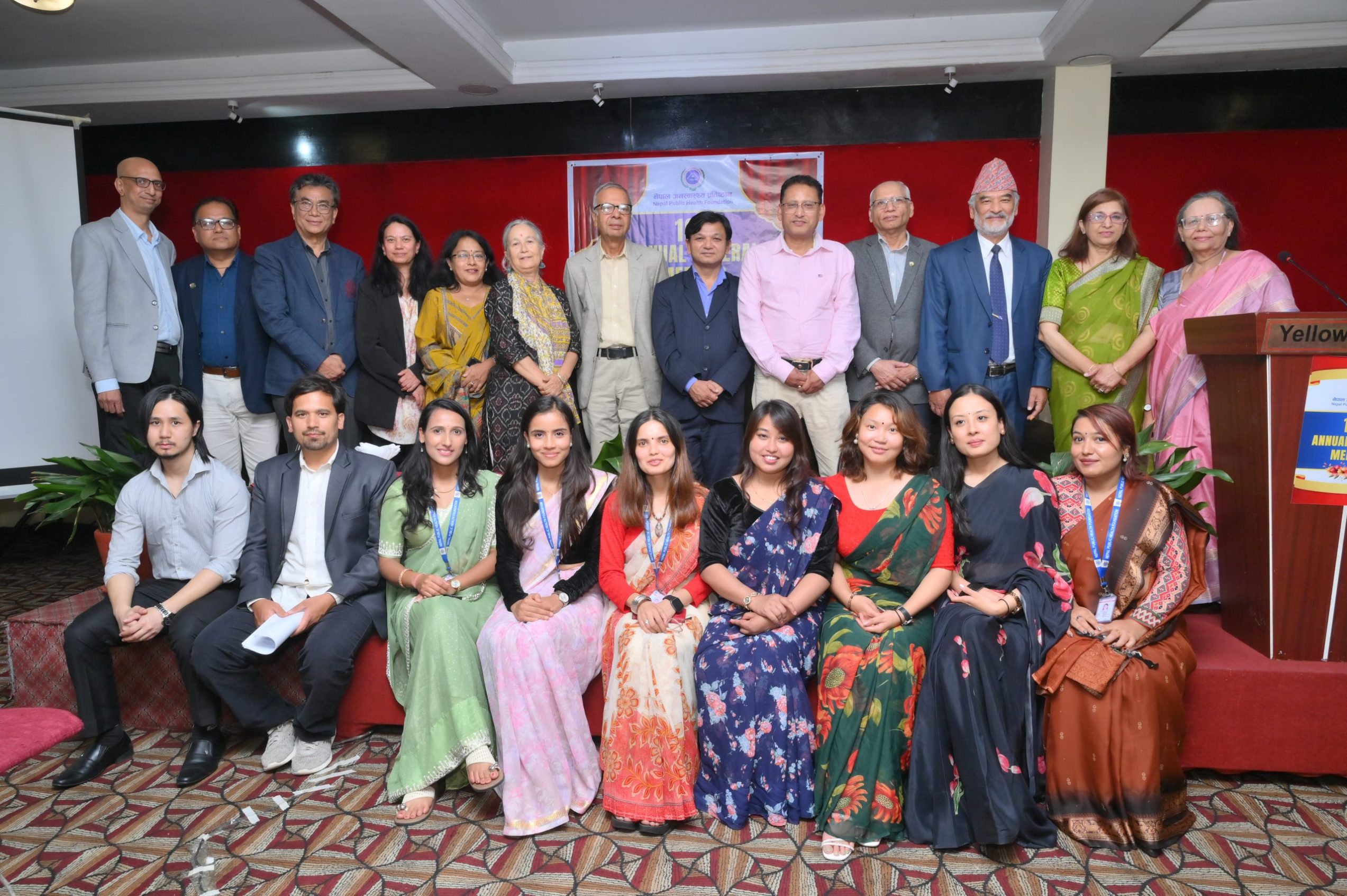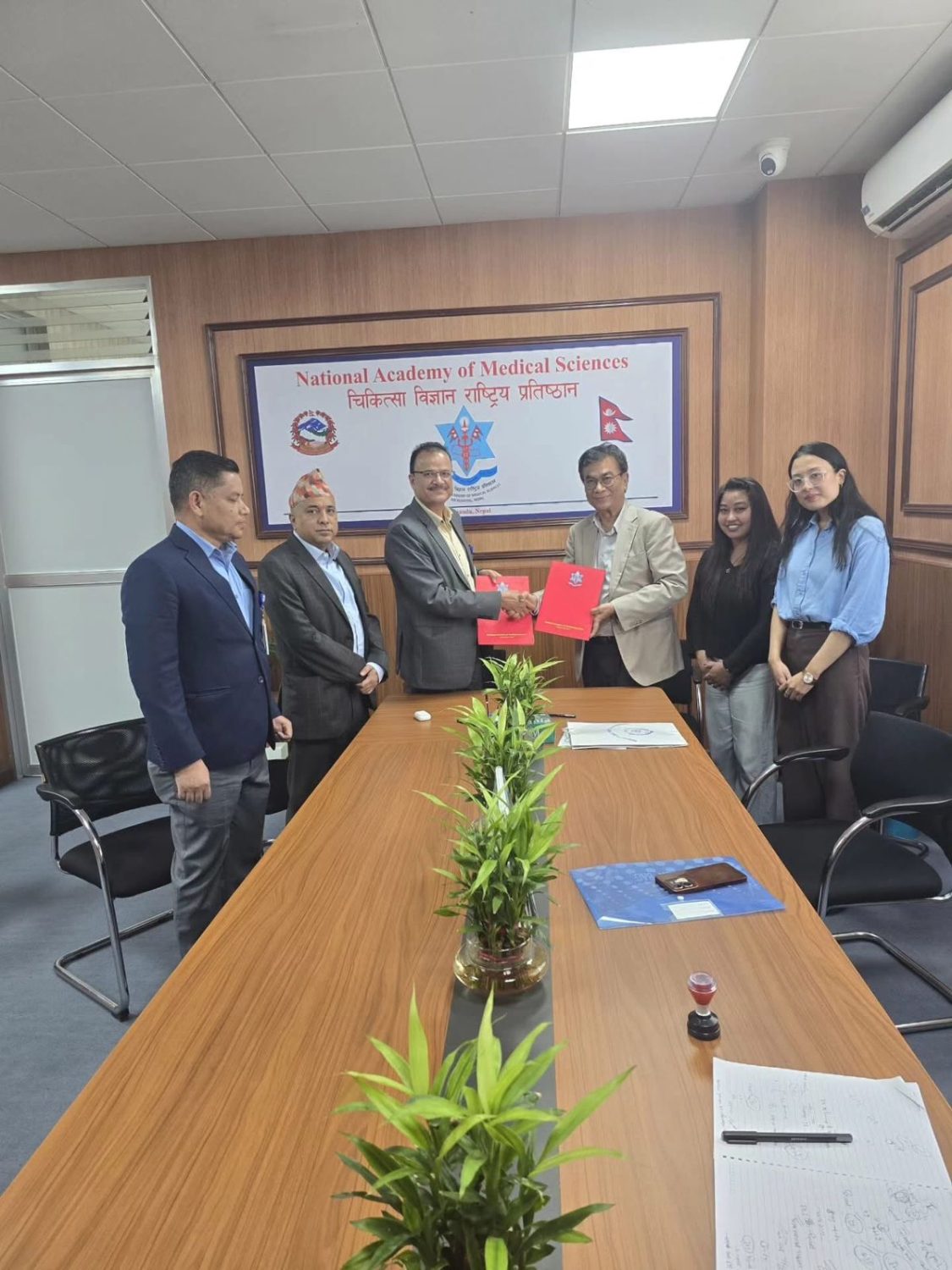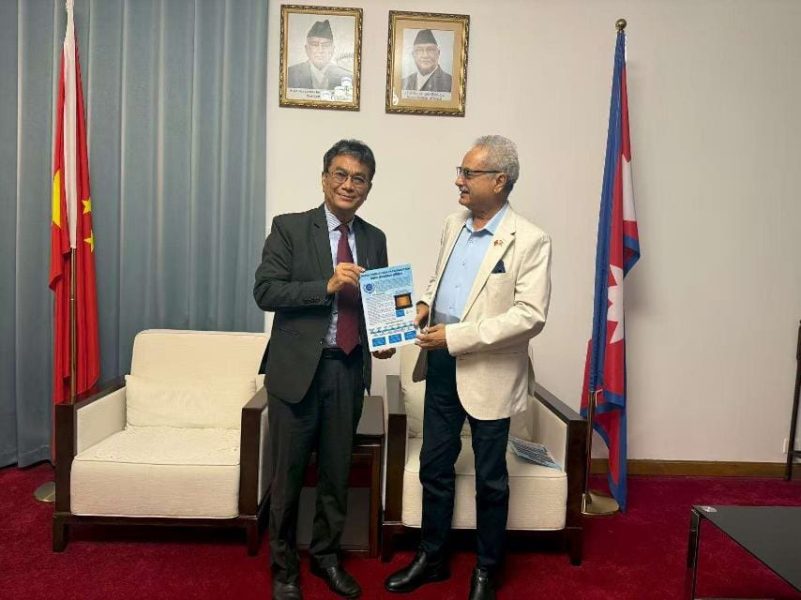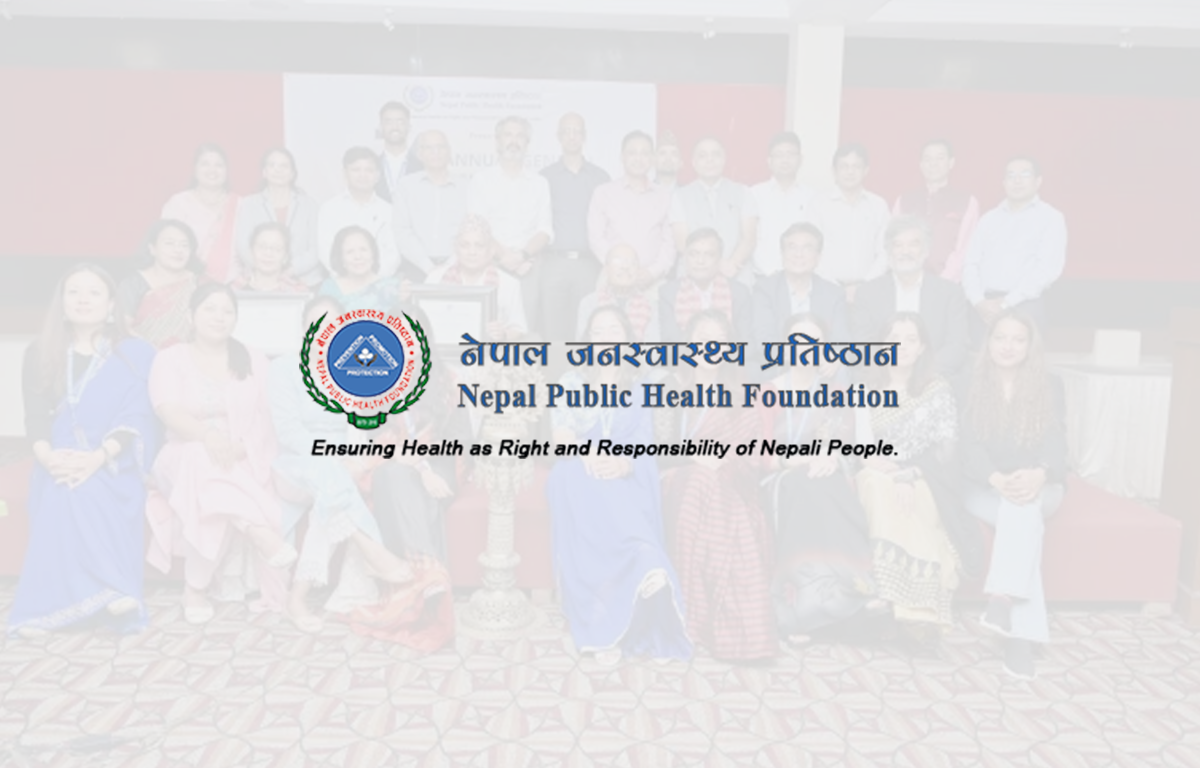Follow- up Policy Dialogue Meeting at Federal Level on ‘Exploring the Issue of Pesticides in Nepal: Practices, Policies and the Need for Multi-Sectoral Action’
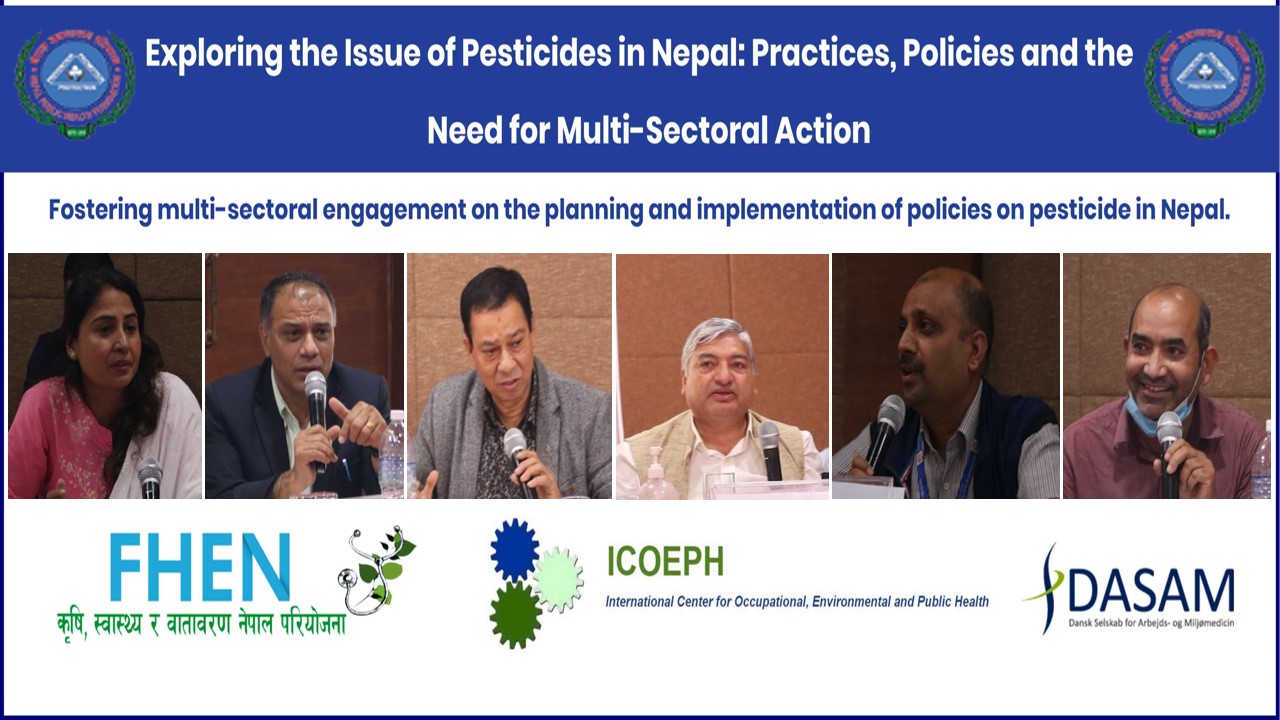
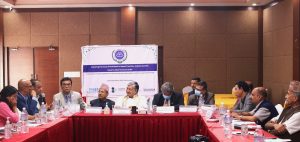
Background
The Follow- up Policy Dialogue Meeting at Federal Level was carried out at Aranya Boutique Hotel, Nagpokhari by the participation from the different stakeholders on September 2nd, 2022. The people present for the meeting were from Plant Quarantine and Pesticide Management Centre, Nepal Health Research Council, Department of Food Technology and Quality Control, Ministry of Health and Agriculture and the Policy Research Institute A presentation from Dr. Abhinav Vaidya was shared and we had invited a few people as panelists so they could share a few words. The panelists for the meeting were Dr. Madan Kumar Upadhyaya (Division Chief of Quality Standard and Regulation Division of MoHP), Dr. Matina Joshi Vaidya (Director General of Department of Food Technology and Quality Control), Dr. Pradip Gyanwali (Executive Chief of NHRC), Mr. Manoj Pokhrel (Senior Plant Protection Officer of PQPMC), Mr. Achyut Prasad Dhakal (CSC Member and Former Secretary of MOLMAC) and Ms. Bimala Dahal (Local Organic Farmer).
Objective
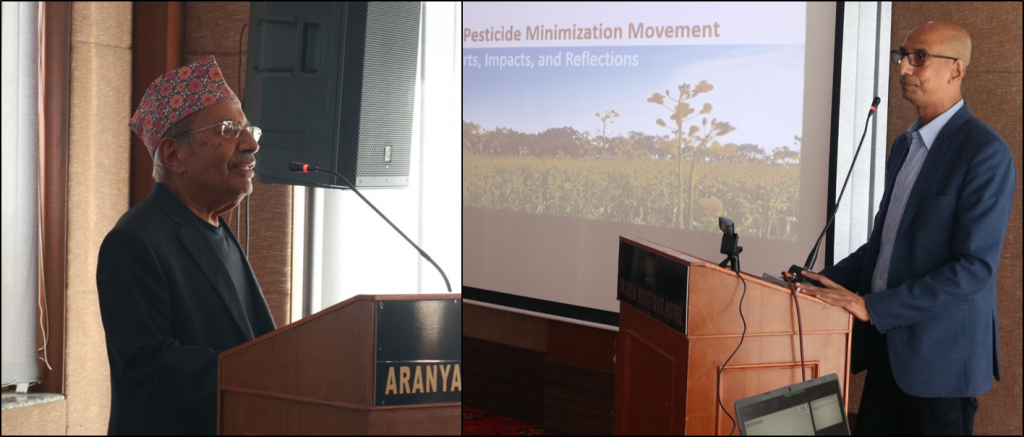 To exchange knowledge/studies/experiences on the issue of pesticide
To exchange knowledge/studies/experiences on the issue of pesticide
- To create a platform where politicians and policymakers can voice their role and work to address the issue of chemical pesticide
- To pave the way for discussion and foster multi-sectoral engagement in the planning and implementation of policies on pesticides in Nepal.
- To identify and strengthen the relationship with key stakeholders at the federal level who are willing to help push the agendas on pesticide policies forward.
Key Statements from the Panel members
Dr. Madan Kumar Upadhyaya
Dr. Upadhyaya who is the Division Chief of Quality Standard and Regulation Division of Ministry of Health and Population key statements were as follows:
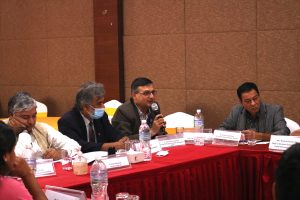 Health not just includes curative aspects but also includes preventive aspects
Health not just includes curative aspects but also includes preventive aspects- Pesticide management is very important but it is lagging behind
- Community is the main area where pesticide related diseases are emerged
- MOHP had tried to do many things regarding the issue of pesticide management but it is not enough
- Lack of awareness and education regarding the issue
- No coordination among the stakeholders
- During Policy formulation it is very important to adapt multisectoral approach, its minimization is not possible by the effort of the single sector
- Lack of human resources and no proper testing
Mr. Sailesh Kumar Jha
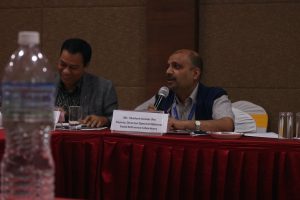 Mr Jha who is the Deputy Director General from the Department of Food Technology and Quality Control key statements were as follows:
Mr Jha who is the Deputy Director General from the Department of Food Technology and Quality Control key statements were as follows:
- There is a lack of coordination among the concerned stakeholders
- Problems related to the access of database related to pesticide
- Lacking of a proper mechanism
- There is also lack of institutional capability and human resource that needs to be tackled for pesticide minimization
Dr. Pradip Gyanwali
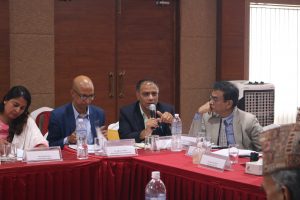 Dr. Gyanwali who is the Executive Chief of Nepal Health and Research Council key statements were as follows:
Dr. Gyanwali who is the Executive Chief of Nepal Health and Research Council key statements were as follows:
- Ministry level should take ownership
- Pesticide is not only associated with human health but also related to animal health and agriculture, it also affects mental health of human being so multisectoral approach is very essential
- Series of discussion for this issue is necessary
- Message related to this topic should be dispersed for awareness purpose
Mr. Manoj Pokhrel
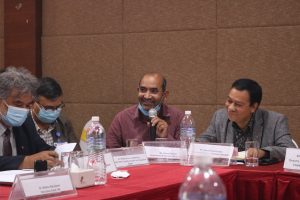 Mr. Pokhrel who is the Senior Plant Protection Officer of Plant Quarantine and Pesticide Management Centre key statements were as follows:
Mr. Pokhrel who is the Senior Plant Protection Officer of Plant Quarantine and Pesticide Management Centre key statements were as follows:
- Registration work is done by PQPMC and PQPMC has been trying to update the website
- There is a lack of human resource and also budget for pesticide management
- Lack of capacity and formal education of the agrovets
- License are provided to the agrovets on the basis of one- or two-day trainings
- Pesticide management act has been established
Mr. Achyut Prasad Dhakal
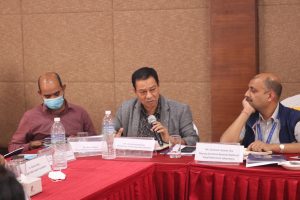 Mr. Dhakal who is the former secretary of Ministry of Land Management, Agriculture and Cooperative and the Central Steering Committee Member of FHEN key statements were as follows:
Mr. Dhakal who is the former secretary of Ministry of Land Management, Agriculture and Cooperative and the Central Steering Committee Member of FHEN key statements were as follows:
- There are many advantages of pesticides as well it helps to manage pest and kill insects.
- Pesticide is mostly used in Cotton, it leads to different hazards
- Lack of manpower is a major issue which should be solved for pesticide minimization
- Institutional arrangements are necessary
- Focus on empowering human resource
- Focus on monitoring and supervision
- Directives and guidelines should be prepared for the safe use of pesticides
- And it should also include about the proper storage and disposal of the pesticide container, Post-harvest interval (waiting period) and maximum residual limit
- Proper data should be maintained about Post Harvest Interval
- Awareness should be created about maximum residual limit
- Appropriate data is required to work on these guidelines
- Knowledge about Acceptable Daily Intake should be increased
Ms. Bimala Dahal
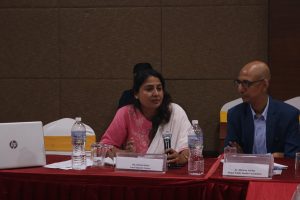 Ms. Dahal who is a Local Organic Farmer key statements were as follows:
Ms. Dahal who is a Local Organic Farmer key statements were as follows:
- C graded palm oil has been used in Nepal, oil related farming is a neglected issue
- Large amount of pesticide has been used in this kind of farming
- When taking about the issue of pesticide, the topic of soil is not often discussed. Discussions related to the quality of soil has to be raised for pesticide minimization.
- Farmers often tend to use hybrid seed which is also an issue
- Lack of sufficient market for organic products is also a major hurdle for the transition into organic farming
- IPM and sufficient market is very important for organic farming
Remarks from Chief Guest – Dr. Bishnu Raj Upreti
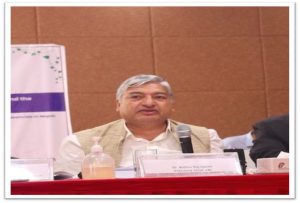
Dr. Upreti who is the Executive Chairperson of Policy Research Institute key statements were as follows:
- Pesticide is the concern of the entire nation not just of a single sector
- Lack of co-ordination among the high-level authority is the major problem
- Fundamental change is required
- Discussion should be done with the key stakeholders regarding their respective duties and responsibilities
- Policies should be formulated on the basis of evidences
- Policies should be measurable, quantifiable and more specific
- Health and Agriculture are related to the citizens of the country hence the policies related to it should be formulated on the basis of the evidence.

